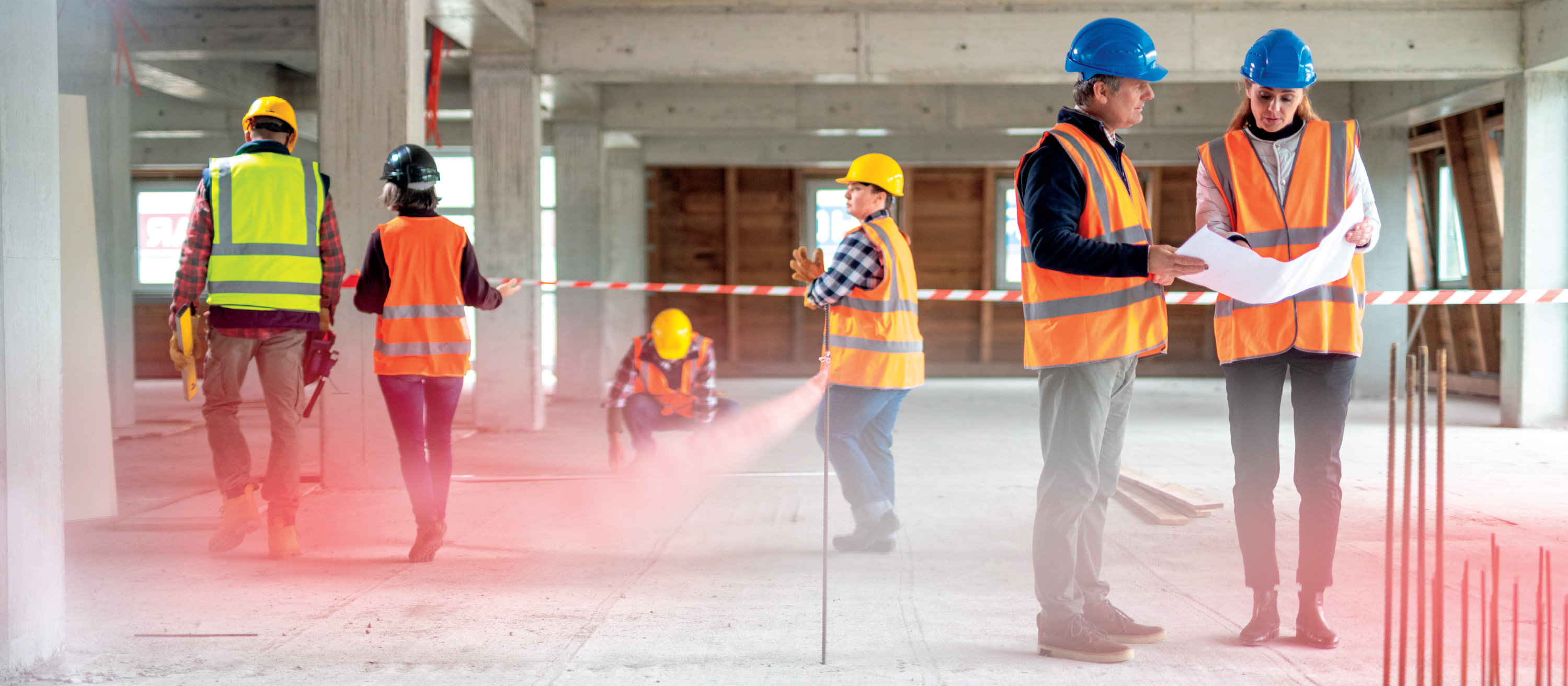Supporting technical experts to become work-based trainers
This project will identify key capabilities and good practices that support effective work-based training. We will develop and trial tools and resources that support work-based trainers to improve their practice

Project outputs
See AllThe issue
Ākonga in work-based learning contexts will spend roughly 70 percent learning on-job with a work based Kaiako/trainer, and 30 percent off-job with a provider-based trainer. Currently there is a lack of support for work-based trainers to develop their training skills.
Intended outcomes
- Identify examples of good work-based training practice
- Identify common needs for capability development of work-based trainers
- Tools and resources are developed and trialed to support work-based trainers
- Recommendations and summary of findings.
The steps
- Step 1: Recommendations and summary of findings
- Step 2: Develop tools for capability development
- Step 3: Trial ability development solutions in the workplace
- Step 4: The development a suite of recommendations and associated strategies.
Researcher: Jackie Messam
My curiosity for people paired with a strong background in staff development and programme design has led me to forming RippleEd.
With a background in education and a strengths based, people centred approach, I have spent a vast amount of time supporting the capability development of leaders, technical experts and teachers in New Zealand, the United Arab Emirates and Malaysia.
I have a Master’s in Education, and I’m a qualified secondary teacher with a background in teaching ESL (English as a Second Language) and Japanese. I’m also an accredited CQ (Cultural Intelligence) and EC (Emotional Capability) trainer.
I’m currently working with Te Pūkenga, PTEs, and businesses on a range of capability projects to upskill Kaiako in the workplace and on campus.
Collaborator: We will be collaborating with seven small to large businesses in the construction and infrastructure industry
Project expected delivery date: 22 March 2024
Project Status: Complete
Contract Research Organisation: RippleEd
Related projects
Funding of workplace training and work-integrated learning for the construction and infrastructure industries
Funding of workplace training and work-integrated learning for the construction and infrastructure industries
Evaluation of government policy settings for apprentices
Understand the extent to which government apprenticeship policy settings are working

VET in schools: towards a model for Year 12 & 13 in New Zealand schools
VET in schools: towards a model for Year 12 & 13 in New Zealand
Degree-level apprenticeship (DLA) comparative pilot
Degree-level apprenticeship pilots
The place of micro-credentials in New Zealand
The place of micro-credentials in New Zealand
Investigating training advisors in work-based learning in the construction and infrastructure sectors
Analysing systemic forces for workforce development alongside

Civil Construction: A requirement for a robust and reliable training pipeline
Providing recommendations to combat the skilled labour shortage
Offsite manufacturing workforce forecast
Forecasting the size of the offsite manufacturing workforce required across the next 5-10 years

Workforce journey indicators data dashboard
A data project to understand how people navigate in and out of the construction workforce
A more effective model of support for Māori Level 4 Carpentry apprentices – reducing the time it takes to get qualified
Using kaupapa Māori interventions to increase the number of qualified Māori builders
Where is the front door? An investigation into the workforce entry points within the Construction and Infrastructure sector
Mapping the multiple entry points into the construction and infrastructure sectors

Environmental competency training
Ascertaining the specific skills required to meet the government’s environmental goals
Framework for Māori in high-skill roles
Understanding skills shortages experienced by Māori firms to support Māori into high-skill roles

From skilled industry practitioner to Kaiako
Analysing the current kaiako training to identify effective practices in classroom-based tertiary education

Temporary traffic management credentials framework
Informing the development of an improved TTM Credentials Framework

The New Zealand Quarrying Industry’s Possible Futures Toward 2030
Predicting the trends that will impact the quarrying industry to guide quarrying practice
Women’s experiences working in Construction and Infrastructure
Women’s experiences working in Construction and Infrastructure
Skill standards
Good Practice in the Development and Implementation of Skill Standards-Based Qualifications
Neurodiversity
Neurodiversity
Pathways to Successful SMEs
Pathways to Successful SMEs
A Case Study: Cook Brothers Construction Apprentice Academy
A Case Study: Cook Brothers Construction Apprentice Academy

AI Generated Assessment
Using artificial intelligence to create high-quality, engaging, and personalised assessments
A Case Study: Augmented reality in welding training
A Case Study: Augmented reality in welding training
Future workforce skills for Māori and Pasifika owned businesses in construction
Industry Analysis
ConstrucTrend: Vocational Workforce Survey
ConstrucTrend: Vocational Workforce Survey
Co-design guidance for allyship (upstander/ bystander) training
Practical guidance for providers and employers to implement allyship/upstander training in their organisation…
